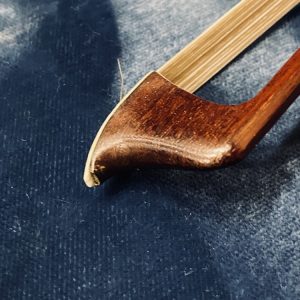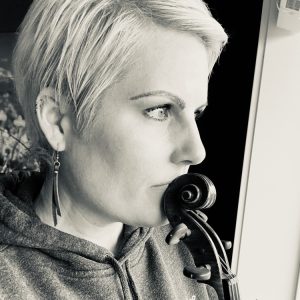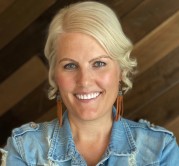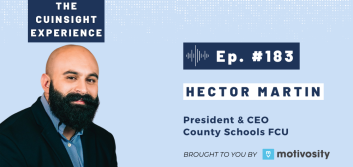The danger of the preemptive setback: Why the joy-robber could be you

Original Albert Nürnberger violin bows are highly-prized German masterpieces. Each bow was crafted from Pernambuco heartwood, and stories have long circulated that Nürnberger obtained that wood from barrels being floated down a nearby river. The Pernambuco tree harvests had originally been exported to Europe in the 1500s for use as a red dye and then for the wood’s remarkable ability to hold a fixed curve. (Bear with me here.) A bow has meticulously-designed curvature, and each unique feature is critical for drawing sound out of the violin. Curvature, weight, balance point, length, horsehair friction from rosin, and the very tiniest of details can make a tremendous difference in the performance of a musician. Miles Hoffman once told NPR, “… the bow is for the string player what breath is for the singer. And, one of the reasons that good bows are so prized is that they are so versatile. They have to be strong. They have to be flexible. They have to be balanced just right. They have to— most important, they have to make a beautiful sound.”
When I was fifteen and had decided to pursue a degree in music performance, my parents sacrificed a great deal to outfit me with a concert violin and a gorgeous Albert Nürnberger bow from the late 1800s. For 25 years, I’ve grasped its ebony frog and grazed my fingers across its silver mountings, the intricate Parisian eye, inlaid pearl, bone, and ivory. The bow feels like an extension of my body at this point, and I could probably choose it while wearing a blindfold due to my familiarity with its feel at my fingertips. It’s not lost on me that my Nürnberger has been through two world wars and who knows what other tribulations and triumphs before it came to be mine. It’s an incredible piece of history that still brings music to life today. I love this bow.
And, a couple of months ago, I dropped it.

I dropped my Nürnberger. I was in a symphony rehearsal and had stood up for break, and suddenly the bow was flying out of my hand and crashing down to the stage floor. My cheeks red-hot with humiliation, I quickly picked it up (quietly thanking God that it hadn’t snapped in half) and rushed off the stage. I was certain everyone around me was horrified by my carelessness, and I felt tears burning my eyes as I snuck away to a quiet corner to examine the damage. I’d chipped off the “beak” which is the very end of the tip of the bow. This most fragile area is held together underneath with a delicate ivory plate, and my heart sank at what I’d done. I got through the second half of rehearsal and finally let the tears come when I drove back home. And did they ever flow.

Was it just the bow? No. Bows can be repaired, as upsetting as it was. I knew I’d dropped it because of my MS. Because this stupid, awful disease has left ugly scars all over my nerve pathways, and things that used to be second nature to me are not second nature anymore. It was the first time I had to acknowledge that I couldn’t hide this all the time no matter how hard I tried. I felt like my situation had been laid bare for all the world to see, and I was shocked at the level of shame I felt for something I couldn’t control. For weeks after the incident, I grasped my bow with such paralyzing fear that I wasn’t enjoying the music anymore. Or playing as well. I allowed a setback to rattle me and steal my joy. I even had crazy ideas like retiring early and doing a Costanza-worthy “I’m out!” The idea of staying and risking an embarrassing decline seemed too horrible to bear.
Guys, this isn’t just applicable to musicians or people living with illness or disability. Everyone has their own sh!# to deal with, right? Especially now. How many times do we get in our own way? How many times do we steal our own joy? Life is full of setbacks, and our careers certainly aren’t insulated from them. Companies hire whole human beings—not robots who show up for eight hours. We mess up. We have bad days and truly cringeworthy moments. We blow presentations, miss opportunities, get turned down for promotions or new jobs, fumble the ball on important projects, and fail to present the best version of ourselves. No one is immune to setback or fear of a setback, but it’s how we respond that reveals the meat of our character.
There is no such thing as a “preemptive setback,” but we create that fallacy with ease. It’s well-known by now that women often won’t apply for roles because of what is essentially that. They’ll tick off reasons such as not meeting every last qualification the job description lists or not being asked to apply (and therefore assuming the role is intended for another candidate). Those decisions, unconscious as they may be, are an example of stealing one’s own opportunity and what could very well become one’s own joy. Paradoxically, successful people often struggle the most with recovering from rejection. Again, we allow setback to cripple us and steal our confidence. It’s an easy trap to fall into, but it hinders growth and can cost you, your coworkers, your company, and even your friends and family. Resilience should be taught in every business school, because it is an exceedingly rare and charmed individual who sails through life without a single struggle or disappointment.
People— not just violin bows— must be versatile, strong, flexible, and balanced. It takes these qualities to draw out beauty and joy and success in every aspect of our lives. The way we speak to ourselves has real-life ramifications. Imagine the aggregate opportunity cost to people and businesses from “preemptive setbacks.” Imagine the amazing ideas that have been quietly filed away for fear of rejection. Imagine the unique perspective lost when a female candidate feels unworthy to apply for a role for which she is perfectly suited. Imagine the revenue lost when a successful employee burns out because he has allowed a setback to steal the joy from his work. The list could go on infinitely, but the point hopefully rings true for you and sparks some reflection.
My beloved Nürnberger bow is now repaired with mastodon ivory, and you’d never be able to tell it was damaged to begin with. My violin still recognizes its faithful companion, and it’ll return to rehearsal next month to tackle Mahler. When it does, my white-knuckle grasp will have relaxed, and I’ll trust myself. Allowing a setback to rattle me was one thing but, from now on, I will be sharply perceptive about times I create a “preemptive setback” and steal my own joy.





